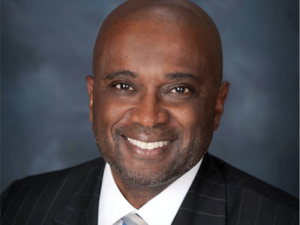As vice president of U.S. federal at Commvault, a data protection company that's worked with a number of top federal agencies (like the Department of Justice, the Department of Commerce and the Department of the Interior), Craig McCullough has observed and studied the federal IT landscape thoroughly.
That's why when the Department of Defense admitted that it still uses those eight-inch floppy disks from the 1980s (remember those?) at the June 19 American Technology Council summit, McCullough felt compelled to speak out about what he believes are the top three priorities for the federal government, when it comes to revamping federal tech: (1) migration to the cloud, (2) cloud-based security and (3) hyper-convergence/supercomputing.
DC Inno had a chance to chat with McCullough about how the changes he hopes to see can be implemented in the federal government.
DC Inno: You name three top priorities: use of the cloud and cloud-based security, and hyper-convergence. Can you break those things down, and talk about how important they are?
Craig McCullough: Talking from a strictly federal perspective, I think the cloud is important because it's going to increase compute power beyond what you can do with any data center-based structure. You're going to be able to harness the compute power of server storage far beyond beyond what you can do in the four physical walls of a data center.
The other thing is that from a pure leveraging and application management perspective, you can do much more in a cloud-based environment than you can from a physical data center where you're confined to that specific data center. What are the ultimate capabilities of doing that in a cloud? I don't know, but the possibilities are much larger and grander from a cloud-based perspective than from an archaic data center perspective.
One of the simplest benefits of moving to the cloud is that your data isn't contained in one area, and if it's ever compromised, it's retrievable, protectable, even if, God forbid, an entire data center were to disappear, it shouldn't destroy all your data or your ability to leverage or use that data. So, from a security perspective, that's pretty big.
Hyper-convergence is kind of a new buzzword that's hit in the last couple of years. Think of it as like the ability to scale as quickly as you need to, without the hindrance of needing property. Way back when, you were limited by the size of your data center — how many machines you could put on the floor, how many people you had to manage them. Hyper-convergence, in layman terms, takes the power of compute, and puts it in a very powerful converged infrastructure. I heard the term 'limitless scalability' once, that capability to scale up or down at any moment, whenever you need it.
Our government has admitted on no uncertain terms that they're not in a place where they want to be from a security standpoint with data.
How urgently do you think these changes need to happen?
The urgency is enormous. We've seen that just by the virtue of the fact that our voting systems have been compromised by foreign entities. Our government has admitted on no uncertain terms that they're not in a place where they want to be from a security standpoint with data.
I think that there is as much or more pressure from an IT perspective on the federal government now than there ever has been because foreign operations against our government, and our operations against foreign governments, seem to be moving more in a direction of an IT type of approach, rather than fighting on the battlefield. So, I think that urgency comes from many different directions, primarily because of the growing importance that IT and data are playing on the world stage, from a world power perspective.
How realistic is it to expect that what you're suggesting will become a part of standard use?
The move to the cloud is going to be well underway in the next two-to-three years.
I think that chip technology is about to take a turn, specifically focused on cloud, and I think once that happens, we're going to see another surge in what is capable within the cloud that we're not even thinking about yet. There is going to be incredible technology, and we're going to see some of that coming out in the next three-to-five years. We are at the very, very, very beginning of a major shift in how we leverage technology from a corporate and a federal perspective. I think a decade from now, if we look back on it, we'll probably laugh.
What are some of the biggest threats facing federal use of tech?
I think the biggest threat is, generally, not being ahead in the game, not being a driver in the advancement of technology. You look back on the 1940s during World War II, and the technology was pretty much centered around machinery, aircrafts, a race to get to the moon, and you saw a very tight-knit collaboration between the government and corporate America to share information, share technology, make sure America was up front. In this day and age, we don't have that, and I think that that's compromised our ability to move forward in a fashion that we're used to as a country.
Image used via CC0 License - Credit Architect of the Capitol




